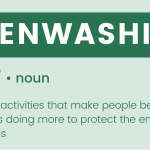Vietnam’s Decree No. 147/2024/ND-CP, that took effect on December 25, 2024 (“Decree 147”), represents a seismic shift in Vietnam’s approach to regulating cyberspace. This has profound implications for foreign technology companies operating cross-border services. This 200-page Decree replaces the relatively recent Decree No. 72 that dates from 2023. It introduces a robust framework that targets platforms such as social media networks, app stores, cloud service providers, and content-sharing sites. It applies to companies that either lease onshore data storage infrastructure in Vietnam or attract more than 100,000 monthly visits from Vietnamese users for six consecutive months. Within 60 days of meeting these thresholds, firms must formally notify the Ministry of Information and Communications (MIC)[1], a process that demands meticulous documentation, legal precision, and familiarity with Vietnam’s bureaucratic landscape.
Compliance requirements:
The compliance requirements outlined in the decree are both extensive and intricate, creating challenges for global tech giants and smaller players alike. One of the most immediate hurdles is the mandate to monitor, inspect, and remove infringing content–such as material deemed illegal, offensive, or harmful—within strict timeframes, often as short as 24 hours following a request from state authorities or affected users. For platforms like Facebook, YouTube, or TikTok, which host billions of user-generated posts, this requires the scaling-up of content moderation teams, artificial intelligence tools, and localized expertise. Failure to act within mandated timeframes risks penalties, reputational damage, or even operational bans, placing pressure on companies to adapt their global systems to Vietnam’s unique regulatory demands.
Additional layers of compliance:
Beyond content moderation, the decree imposes additional layers of responsibility. Foreign providers are required to implement child protection mechanisms, such as age-verification systems, content warnings, and filters to shield minors from exposure to violence, explicit material, or other inappropriate content. This aligns with Vietnam’s broader goal to foster a safer online environment but complicates operations for firms accustomed to more permissive frameworks elsewhere. For instance, a platform like Instagram might need to overhaul its algorithms to flag and restrict content dynamically based on user age, a process that could require months of development and testing to meet MIC standards.
Perhaps the most controversial requirement is mandatory user authentication. The decree stipulates that social network accounts must be verified using Vietnamese mobile phone numbers or national identification numbers, a measure intended to enhance cybersecurity and reduce anonymous misinformation. However, this clashes with the ethos of many global platforms that prioritize user privacy and anonymity as core features. Companies like Twitter or Reddit, which thrive on pseudonymous interaction, may face resistance from users unwilling to link their online personas to real-world identities. Implementing this system demands not only technical adjustments–such as integrating with Vietnam’s telecom infrastructure–but also careful messaging to mitigate privacy concerns and maintain user trust.
Reporting obligations:
Reporting obligations further amplify the compliance burden. Foreign firms must submit detailed annual reports to the MIC, covering metrics like content takedowns, user complaint resolutions, and content moderation performance, alongside ad-hoc reports as requested. This level of transparency requires sophisticated data-tracking systems and dedicated regulatory teams, driving up operational costs. For tech giants like Google or Amazon, with deep pockets and established compliance departments, these requirements are challenging but feasible. Smaller firms or startups, however, may find the financial and logistical strain overwhelming, potentially prompting them to scale back or abandon their Vietnamese operations altogether.
The competitive implications of this decree are significant and suggest that only companies with substantial resources or market share in Vietnam’s 100-million-strong market–such as Meta, with its dominant social media presence, or Tencent, with its gaming ambitions–can endure the compliance marathon. This could lead to further consolidation of market share among larger players, squeezing out smaller competitors. At the same time, the decree’s complexity introduces a degree of uncertainty; missteps in compliance could trigger fines, service disruptions, or public backlash, testing even large resilient players.
An opening for Vietnamese firms:
Yet, the decree opens doors for Vietnam’s domestic tech ecosystem. Foreign companies, overwhelmed by the regulatory intricacies, are likely to seek partnerships with local firms that have a nuanced understanding of Vietnam’s legal, cultural, and operational landscape. Vietnamese businesses could step in to offer services like content moderation outsourcing, user authentication solutions, or MIC liaison support, turning compliance hurdles into economic opportunities. For example, a Hanoi-based startup might develop AI tools tailored to Vietnam’s content guidelines, partnering with a platform like Twitch to streamline its moderation processes. Such collaborations could drive innovation, create jobs, and position Vietnam as a regional leader in digital compliance expertise.
Moreover, the decree reflects Vietnam’s ambition to assert greater control over its digital borders, aligning with global trends of data sovereignty and cybersecurity. For foreign firms willing to invest in long-term adaptation–building data centers, hiring local talent, and aligning with national priorities–the payoff could be substantial. Vietnam’s young, tech-savvy population and rapidly growing digital economy offer a lucrative market for those who can navigate the regulatory maze. Companies that succeed will not only secure a foothold but also contribute to shaping a digital landscape that balances innovation with state oversight.
Decree No. 147/2024/ND-CP presents foreign tech firms with a daunting array of compliance demands paired with a chance to tap into Vietnam’s tech potential. The road ahead requires agility, investment, and strategic foresight.
As a market leader in data protection, privacy, and information security regulations, Russin & Vecchi is well-positioned to support businesses to prepare for these new compliance requirements.
[1] Although the Ministry of Information and Communications (MIC) was merged with the Ministry of Science and Technology in March 2025, the term “MIC” is used throughout this article for consistency with the terminology adopted in Decree No. 147/2024/ND-CP.






